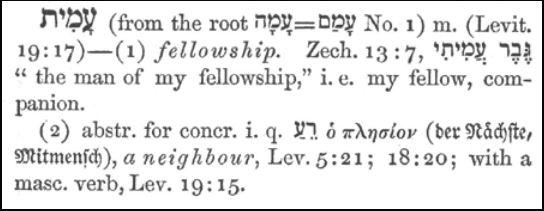In this amazing prediction of the events of the first century it refers to the death of the Shepherd of his People (Messiah, son of David) arranged by God, after which he will turn his attention to the sheep [the Jews] in a great unprecedented slaughter of judgment, followed by the creation of the "Israel of God", his electhis elect that will "call upon his name" and "be heard":
[Zec 13:7-9 KJV] 7 Awake, O sword, against my shepherd, and against the man [that is] my fellow, saith the LORD of hosts: smite the shepherd, and the sheep shall be scattered: and I will turn mine hand upon the little ones. 8 And it shall come to pass, [that] in all the land, saith the LORD, two parts therein shall be cut off [and] die; but the third shall be left therein. 9 And I will bring the third part through the fire, and will refine them as silver is refined, and will try them as gold is tried: they shall call on my name, and I will hear themand I will hear them: I will say, It [is] my people:It [is] my people: and they shall say, The LORD [is] my GodThe LORD [is] my God.
In verse 9 he identifies the subset that he elects, hears and refines as his "People".
The word that Zechariah uses to refer to the messiah in Hebrew, is:
Why does the LORD use the term for "neighbor, associate, fellow" to identify the messiah in this passage?
Notes:
This is how the LXX translates it:
πολίτης (politēs), citizen; fellow citizen. Cognate words: κωμόπολις, Νεάπολις, πόλις, πολιτάρχης, πολιτεία, πολίτευμα, πολιτεύομαι, συμπολίτης. Heb. equiv. fr. LXX: רֵעַ (5×), עַם (1×), עָמִית (1×)
Cross-references: 11.68 (6) citizen Lk 15:15; 19:14; Ac 21:39; 1Cl 55.1; Diog 5.5; fellow citizen Heb 8:11
(2011). The Lexham Analytical Lexicon to the Greek New Testament. Logos Bible Software.
The same word is used in Luke 15, when the prodigal "joined himself to a citizen of that country".
It is also used in "To the Hebrews":
[Heb 8:11 KJV] 11 And they shall not teach every man his neighbour, and every man his brother, saying, Know the Lord: for all shall know me, from the least to the greatest.
So why this interesting adjective to describe the messiah in this prophecy concerning the time of the messiah?
